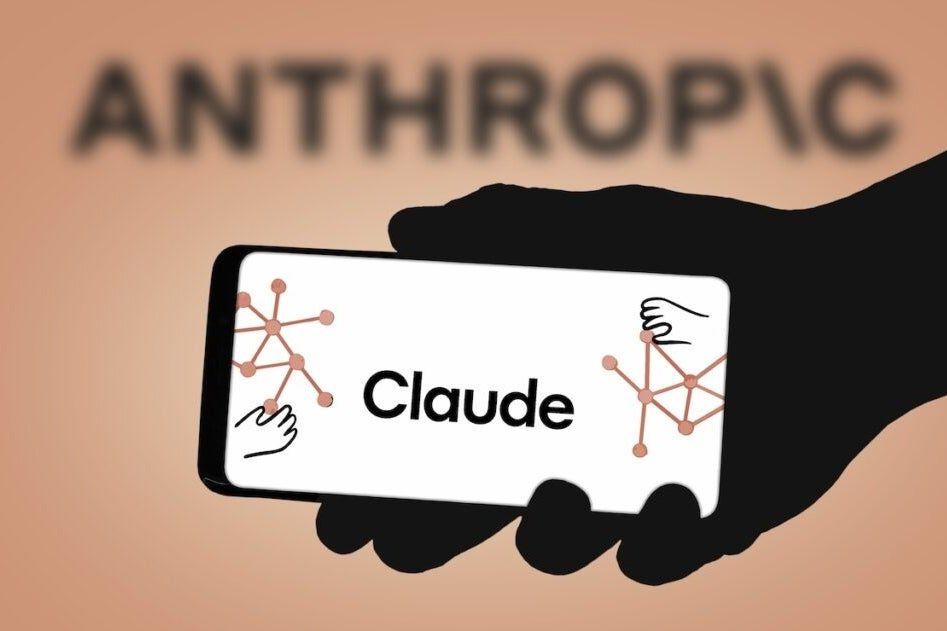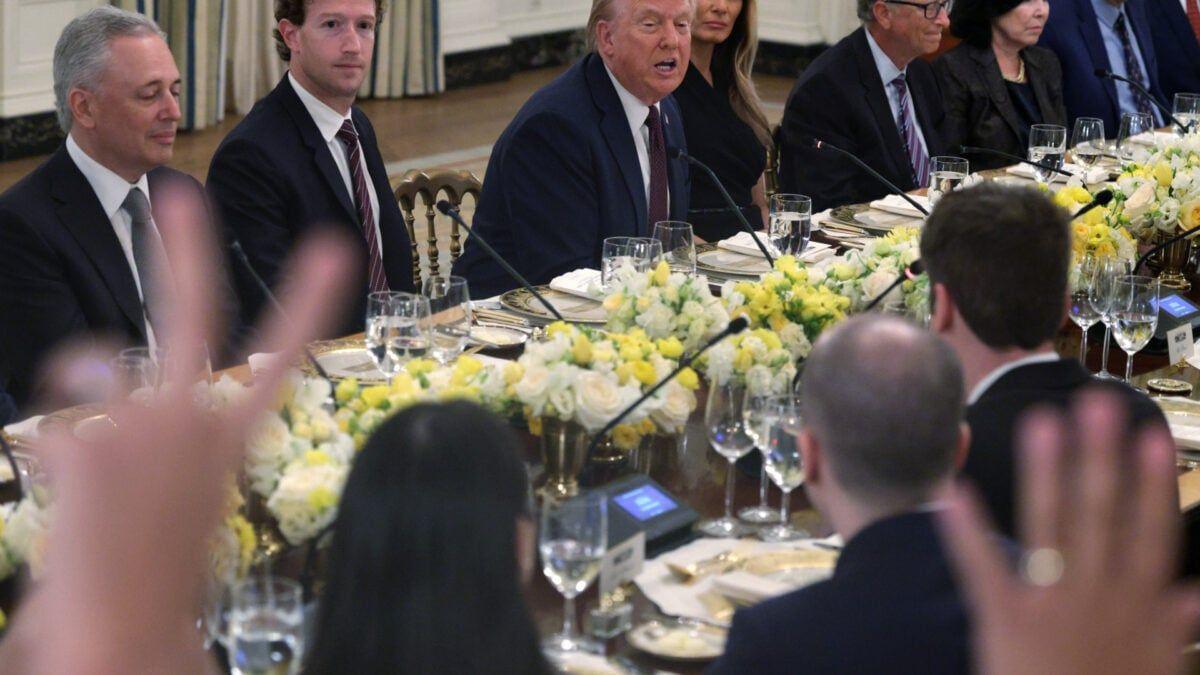Anthropic CEO Defends Pursuit of Gulf State Investments Despite Ethical Concerns
3 Sources
3 Sources
[1]
Leaked Memo: Anthropic CEO Says the Company Will Pursue Gulf State Investments After All
"Unfortunately, I think 'No bad person should ever benefit from our success' is a pretty difficult principle to run a business on," wrote Anthropic CEO Dario Amodei in a note to staff obtained by WIRED. Anthropic is planning to seek investment from the United Arab Emirates and Qatar, according to a Slack message CEO Dario Amodei sent to staff Sunday morning, which WIRED obtained. Weighing the pros and cons, Amodei acknowledged in his note that accepting money from Middle East leaders would likely enrich "dictators." "This is a real downside and I'm not thrilled about it," he wrote. "Unfortunately, I think 'No bad person should ever benefit from our success' is a pretty difficult principle to run a business on." The message comes as AI companies race to secure the massive amounts of capital required to train and develop frontier AI models. In January, OpenAI announced a $500 billion data center project called Stargate with financial backing from MGX, a state-owned Emirati investment firm. Four months later, the company announced it was planning to build a data center in Abu Dhabi, as part of a push to help foreign governments "build sovereign AI capability in coordination with the US." "As an American company at the frontier of AI development, we have always believed the supply chain of frontier AI model development should be on American soil in order to maintain America's lead," said Anthropic spokesperson Christopher Nulty in a statement. "As Dario has said before, we believe fundamentally in sharing the benefits of AI and serve the Middle East and regions around the world commercially, in line with our Usage Policy." In May, President Donald Trump toured the United Arab Emirates and Saudi Arabia as part of a four-day trip focused on economic investments. A cabal of tech leaders, including Elon Musk, Sam Altman, and Nvidia chief Jensen Huang, joined him for a meeting with the crown prince of Saudi Arabia. Anthropic's leadership was notably absent. In his memo, Amodei acknowledged that the decision to pursue investments from authoritarian regimes would lead to accusations of hypocrisy. In an essay titled "Machines of Loving Grace," Amodei wrote: "Democracies need to be able to set the terms by which powerful AI is brought into the world, both to avoid being overpowered by authoritarians and to prevent human rights abuses within authoritarian countries." In 2024, Anthropic decided not to accept money from Saudi Arabia, citing national security concerns, per CNBC. The news came as FTX, the failed cryptocurrency exchange, went into bankruptcy proceedings, and its nearly 8 percent stake in Anthropic went up for sale. Ultimately, a majority of those shares went to ATIC Third International Investment, a UAE firm. At the time, the stake was worth about $500 million. Now, it appears Anthropic is poised to accept Gulf State money -- though the company hasn't said whether it has changed its stance on Saudi Arabia in particular. "There is a truly giant amount of capital in the Middle East, easily $100B or more," Amodei wrote in the memo. "If we want to stay on the frontier, we gain a very large benefit from having access to this capital. Without it, it is substantially harder to stay on the frontier."
[2]
Leaked Slack Messages Show CEO of "Ethical AI" Startup Anthropic Saying It's Okay to Benefit Dictators
In the so-called "constitution" for its chatbot Claude, AI company Anthropic claims that it's committed to principles based on the Universal Declaration of Human Rights, instructing its chatbot to prioritize freedom, equality, freedom of thought, and adequate standards of living in its responses. Anthropic has long attempted to distinguish itself as putting safety first. The firm was founded by former OpenAI members, with a commitment to advancing AI ethically and responsibly. But four years on, the company's human leaders are now singing a dramatically different tune. As Wired reports, CEO Dario Amodei acknowledged in a Slack message that taking funding from Middle East leaders -- which Anthropic is poised to do, with entreaties to the United Arab Emirates and Qatar -- would line the pockets of "dictators." "This is a real downside and I'm not thrilled about it," Amodei wrote. "Unfortunately, I think 'No bad person should ever benefit from our success' is a pretty difficult principle to run a business on." Amodei's remarks highlight how even AI companies that banked on ethical practices are increasingly abandoning those goals as they race to secure funding for enormous -- and incredibly environmentally damaging -- AI infrastructure expansion projects. Even Anthropic, which has long touted itself as a more ethical alternative to the likes of OpenAI, is giving in to the temptation of accepting Gulf State money. That's despite Amodei citing national security concerns for denying Saudi Arabian funds last year. In a major reversal, the CEO is seeing the dollar signs -- and simply can't let his conscience win yet again. "There is a truly giant amount of capital in the Middle East, easily $100B or more," Amodei wrote in the Slack messages, as quoted by Wired. "If we want to stay on the frontier, we gain a very large benefit from having access to this capital," he wrote. "Without it, it is substantially harder to stay on the frontier." Amodei tried to twist the narrative in his favor by arguing that the company was only getting money from Gulf countries, not investing to build out infrastructure there. He argued that it's "dangerous" to hand "authoritarian governments" key AI hardware. The news comes after OpenAI announced it would be part of Trump's $500 billion AI infrastructure project, dubbed Stargate. The massive venture, which is currently struggling to get off the ground, is being backed by the United Arab Emirates' royal family, which has an abysmal track record when it comes to human rights abuses, from detaining prisoners of conscience to the torture of immigrant workers. Amodei threw competing AI companies under the bus, accusing the United States of having "failed to prevent" a "race to the bottom where companies gain a lot of advantage by getting deeper and deeper in bed with the Middle East." The horrific optics of having Anthropic take Gulf State money were apparent, with Amodei accusing the media of "always looking for hypocrisy, while also being very stupid and therefore having a poor understanding of substantive issues." Given the negative blowback following the leak of his memo, Amodei appears to have accurately predicted the resulting "comms headache." In the same breath, he revealed that his AI company had a great interest in serving the Middle East "commercially," which he believes is a "pure positive as long as we don't build data centers there and as long as we enforce our [acceptable use policy]." The puzzling memo paints a picture of an AI industry caught between a rock and a hard place. As ambitions continue to grow, companies are throwing out the rulebook as they desperately try to lock down enough funding to realize their megalomaniac dreams. Even Anthropic, once seen as a more carefully realized alternative to OpenAI, has fallen to the temptation of a virtually endless stream of funding from the Middle East, marking the beginning of a new chapter -- ethics be damned.
[3]
Anthropic CEO Dario Amodei Not 'Thrilled' About It, But Admits Accepting Investment From Middle East Leaders Will Enrich 'Dictators' - Alphabet (NASDAQ:GOOG), Amazon.com (NASDAQ:AMZN)
Anthropic CEO Dario Amodei reportedly told employees that the company would seek funding from Middle-Eastern states despite ethical concerns, arguing that staying competitive in the global AI race requires access to massive capital, even if it empowers authoritarian regimes. What Happened: Amodei told staff via Slack that the artificial intelligence startup backed by Amazon.com, Inc. AMZN and Alphabet Inc.'s GOOG GOOGL Google would pursue investment from the United Arab Emirates and Qatar, reversing its previous stance against accepting funds from authoritarian nations, reported Wired. "Unfortunately, I think 'No bad person should ever benefit from our success' is a pretty difficult principle to run a business on," Amodei wrote, acknowledging that such investments would likely enrich "dictators." He admitted the move could appear hypocritical but framed it as necessary to remain on the AI frontier: "Without it, it is substantially harder to stay on the frontier." Also Read: Apple Undergoing Major Management Overhaul, But CEO Tim Cook To Stay On Amodei cited the scale of available capital in the Middle East -- upwards of $100 billion -- as a driving force behind the decision. He said Anthropic aims to pursue "narrowly scoped, purely financial investment" to avoid granting foreign investors leverage. An Anthropic spokesperson told the publication, "We believe fundamentally in sharing the benefits of AI and serve the Middle East and regions around the world commercially, in line with our Usage Policy." Anthropic did not immediately respond to Benzinga's request for comments. Why It's Important: Anthropic's decision mirrors moves by ChatGPT-parent OpenAI, which has partnered with a UAE state-backed firm to build data infrastructure abroad. Trending Investment OpportunitiesAdvertisementArrivedBuy shares of homes and vacation rentals for as little as $100. Get StartedWiserAdvisorGet matched with a trusted, local financial advisor for free.Get StartedPoint.comTap into your home's equity to consolidate debt or fund a renovation.Get StartedRobinhoodMove your 401k to Robinhood and get a 3% match on deposits.Get Started In 2024, Anthropic had rejected Saudi funding over national security concerns. In May earlier this year, President Donald Trump visited the United Arab Emirates and Saudi Arabia during a four-day tour centered on boosting economic ties. He was accompanied by a group of prominent tech figures -- including Elon Musk, Sam Altman and Nvidia Corporation NVDA CEO Jensen Huang -- for a meeting with Saudi Arabia's crown prince. Notably, Anthropic's executives were not in attendance. Earlier this year, Nvidia criticized AI startup Anthropic for supporting stricter U.S. export controls on AI chips to China. The clash followed Anthropic's blog post describing bizarre smuggling attempts involving chips hidden in fake baby bumps and lobster shipments. Read Next: Trump White House To Crack Down On 'Woke AI' With Executive Order Targeting Political Bias In Government-Contracted Chatbots And Models: Report Photo Courtesy: gguy on Shutterstock.com Disclaimer: This content was partially produced with the help of AI tools and was reviewed and published by Benzinga editors. AMZNAmazon.com Inc$229.401.45%Stock Score Locked: Want to See it? Benzinga Rankings give you vital metrics on any stock - anytime. Reveal Full ScoreEdge RankingsMomentum69.95Growth97.17Quality65.81Value49.97Price TrendShortMediumLongOverviewGOOGAlphabet Inc$191.603.04%GOOGLAlphabet Inc$190.663.03%NVDANVIDIA Corp$171.00-0.82%Market News and Data brought to you by Benzinga APIs
Share
Share
Copy Link
Anthropic, an AI company known for its ethical stance, is now seeking investments from Gulf states, sparking controversy over the balance between maintaining competitiveness and upholding ethical principles in the AI industry.
Anthropic's Shift in Investment Strategy
Anthropic, an AI company founded on principles of ethical and responsible AI development, is now pursuing investments from Gulf states, including the United Arab Emirates and Qatar. This decision, revealed in a leaked Slack message from CEO Dario Amodei, marks a significant shift in the company's approach to funding and ethical considerations
1
.CEO's Rationale and Ethical Dilemma

Source: Wired
Amodei acknowledged the ethical implications of accepting investments from authoritarian regimes, stating, "This is a real downside and I'm not thrilled about it." However, he justified the decision by emphasizing the necessity of substantial capital to remain competitive in the AI industry. Amodei wrote, "Unfortunately, I think 'No bad person should ever benefit from our success' is a pretty difficult principle to run a business on"
1
.Financial Motivations
The CEO cited the vast amount of capital available in the Middle East, estimating it at "easily $100B or more." He argued that access to this capital is crucial for Anthropic to "stay on the frontier" of AI development. Without such investments, Amodei claimed it would be "substantially harder to stay on the frontier"
2
.Industry Context and Competition
This move aligns Anthropic with other major AI companies seeking substantial funding for AI infrastructure projects. OpenAI, for instance, recently announced a $500 billion data center project called Stargate, backed by MGX, a state-owned Emirati investment firm
1
.Previous Stance and Reversal
Anthropic's decision represents a reversal of its previous position. In 2024, the company had declined to accept money from Saudi Arabia, citing national security concerns. Now, Amodei frames the acceptance of Gulf State money as a necessary step to remain competitive, although the company's stance on Saudi Arabia specifically remains unclear
1
.Related Stories
Ethical Implications and Criticism

Source: Benzinga
The decision has sparked criticism and raised questions about the company's commitment to its ethical principles. Anthropic's chatbot, Claude, is guided by a "constitution" based on the Universal Declaration of Human Rights, which seems at odds with accepting investments from regimes with poor human rights records
2
.Broader Industry Trends
Anthropic's shift reflects a broader trend in the AI industry, where companies are increasingly prioritizing access to capital over ethical considerations. This trend is driven by the enormous costs associated with developing and deploying advanced AI systems, particularly in terms of computing infrastructure
3
.Future Implications

Source: Futurism
As AI companies continue to seek massive investments, the industry may face increasing scrutiny over the sources of its funding and the potential influence of authoritarian regimes on AI development. This situation highlights the complex interplay between technological advancement, ethical considerations, and geopolitical dynamics in the rapidly evolving field of artificial intelligence.
References
Summarized by
Navi
[2]
Related Stories
Pentagon clashes with Anthropic over AI safeguards as $200 million contract stalls
30 Jan 2026•Policy and Regulation

Anthropic and Pentagon clash over AI safeguards as $200 million contract hangs in balance
12 Feb 2026•Policy and Regulation

Anthropic's AI Restrictions Spark Tension with Trump Administration
18 Sept 2025•Policy and Regulation

Recent Highlights
1
ByteDance's Seedance 2.0 AI video generator triggers copyright infringement battle with Hollywood
Policy and Regulation

2
Demis Hassabis predicts AGI in 5-8 years, sees new golden era transforming medicine and science
Technology

3
Nvidia and Meta forge massive chip deal as computing power demands reshape AI infrastructure
Technology





